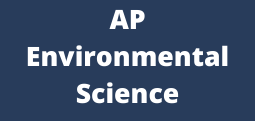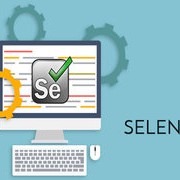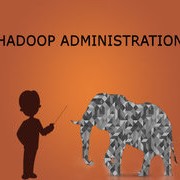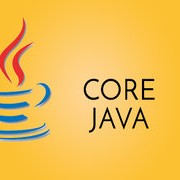Description
AP (Advanced Placement) Classes:
Many high school students choose to take AP courses due to their benefits while in high school, in college applications, and beyond. According to the College Board which administers the AP tests, “AP Gives students the chance to tackle college level work while they are still in high school and earn college Credit and placement.’’
Benefits of AP Classes:
More than a million students in America take AP classes because of the several benefits they provide. AP classes will…
1.Increase student’s chances of being admitted into top colleges.
2.Challenge students more than regular high school classes and prepare them for the demands of college.
3.Help students to obtain scholarships.
4.Enable students to receive college credit before starting college (if they score a 3 out of 5 or higher on the related exams).
5.Increase the likelihood that students will graduate earlier than normal time, thereby allowing them to save the money that extra semesters in college would cost.
The following topics will be covered in AP Environmental Science Class.
Topic 1
1.1 Introduction to Ecosystems
1.2 Terrestrial Biomes
1.3 Aquatic Biomes
1.4 The Carbon Cycle
1.5 The Nitrogen Cycle
1.6 The Phosphorus Cycle
1.7 The Hydrologic (Water) Cycle
1.8 Primary Productivity
1.9 Trophic Levels
1.10 Energy Flow and the 10% Rule
1.11 Food Chains and Food Webs
Topic 2
2.1 Introduction to Biodiversity
2.2 Ecosystem Services
2.3 Island Biogeography
2.4 Ecological Tolerance
2.5 Natural Disruptions to Ecosystems
2.6 Adaptations
2.7 Ecological Succession
Topic 3
3.1 Generalist and Specialist Species
3.2 K-Selected r-Selected Species
3.3 Survivorship Curves
3.4 Carrying Capacity
3.5 Population Growth and Resource Availability
3.6 Age Structure Diagrams
3.7 Total Fertility Rate
3.8 Human Population Dynamics
3.9 Demographic Transition
Topic 4
4.1 Plate Tectonics
4.2 Soil Formation and Erosion
4.3 Soil Composition and Properties
4.4 Earth’s Atmosphere
4.5 Global Wind Patterns
4.6 Watersheds
4.7 Solar Radiation and Earth’s Seasons
4.8 Earth’s Geography and Climate
Topic 5
5.1 The Tragedy of the Commons
5.2 Clearcutting
5.3 The Green Revolution
5.4 Impacts of Agricultural Practices
5.5 Irrigation Methods
5.6 Pest Control Methods
5.7 Meat Production Methods
5.8 Impacts of Overfishing
5.9 Impacts of Mining
5.10 Impacts of Urbanization
5.11 Ecological Footprints
5.12 Introduction to Sustainability
5.13 Methods to Reduce Urban Runoff
5.14 Integrated Pest Management
5.15 Sustainable Agriculture
5.16 Aquaculture
5.17 Sustainable Forestry
Topic 6
6.1 Renewable and Nonrenewable Resources
6.2 Global Energy Consumption
6.3 Fuel Types and Uses
6.4 Distribution of Natural Energy Resources
6.5 Fossil Fuels
6.6 Nuclear Power
6.7 Energy from Biomass
6.8 Solar Energy
6.9 Hydroelectric Power
6.10 Geothermal Energy
6.11 Hydrogen Fuel Cell
6.12 Wind Energy
6.13 Energy Conservation
Topic 7
7.1 Introduction to Air Pollution
7.2 Photochemical Smog
7.3 Thermal Inversion
7.4 Atmospheric CO2 and Particulates
7.5 Indoor Air Pollutants
7.6 Reduction of Air Pollutants
7.7 Acid Rain
7.8 Noise Pollution
Topic 8
8.1 Sources of Pollution
8.2 Human Impacts on Ecosystems
8.3 Endocrine Disruptors
8.4 Human Impacts on Wetlands and Mangroves
8.5 Eutrophication
8.6 Thermal Pollution
8.7 Persistent Organic Pollutants (POPs)
8.8 Bioaccumulation and Biomagnification
8.9 Solid Waste Disposal
8.10 Waste Reduction Methods
8.11 Sewage Treatment
8.12 Lethal Dose 50% (LD50)
8.13 Dose Response Curve
8.14 Pollution and Human Health
8.15 Pathogens and Infectious Diseases
Topic 9
9.1 Stratospheric Ozone Depletion
9.2 Reducing Ozone Depletion
9.3 The Greenhouse Effect
9.4 Increases in the Greenhouse Gases
9.5 Global Climate Change
9.6 Ocean Warming
9.7 Ocean Acidification
9.8 Invasive Species
9.9 Endangered Species
9.10 Human Impacts on Biodiversity
Key Features:
Training Type: Online Live Interactive Session.
Experienced Faculty.
1 ON 1 Sessions.
Duration 40 Hours.
Access to Class Recordings.
Weekday / Weekend Classes.
Evening Schedule:
3 Days / Week
8:30 PM – 9:30 PM EST
9:00 PM – 10:00 PM EST
9:30 PM – 10:30 PM EST
10:00 PM – 11:00 PM EST
Morning Schedule:
3 Days / Week
10:00 AM – 11:00 AM EST
10:30 AM – 11:30 AM EST
11:00 AM – 12:00 PM EST
11:30 AM – 12:30 PM EST
Please contact us, If you are looking for different schedule or need more information.
Phone : 1+ 734 418 2465
Email : info@learntek.org
Inquiry Now
USA: +1 734 418 2465 | India: +91 40 4018 1306
The Advanced Placement (AP) is a trademark registered and owned by the College Board, which is not affiliated with Learntek.org, and does not endorse this product. All other trademarks and copyrights are the property of their respective owners.
























 +91 40 4018 1306
+91 40 4018 1306 +1 734 418 2465
+1 734 418 2465 info@learntek.org
info@learntek.org
Reviews
There are no reviews yet.